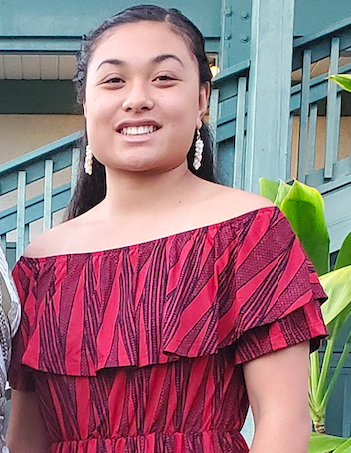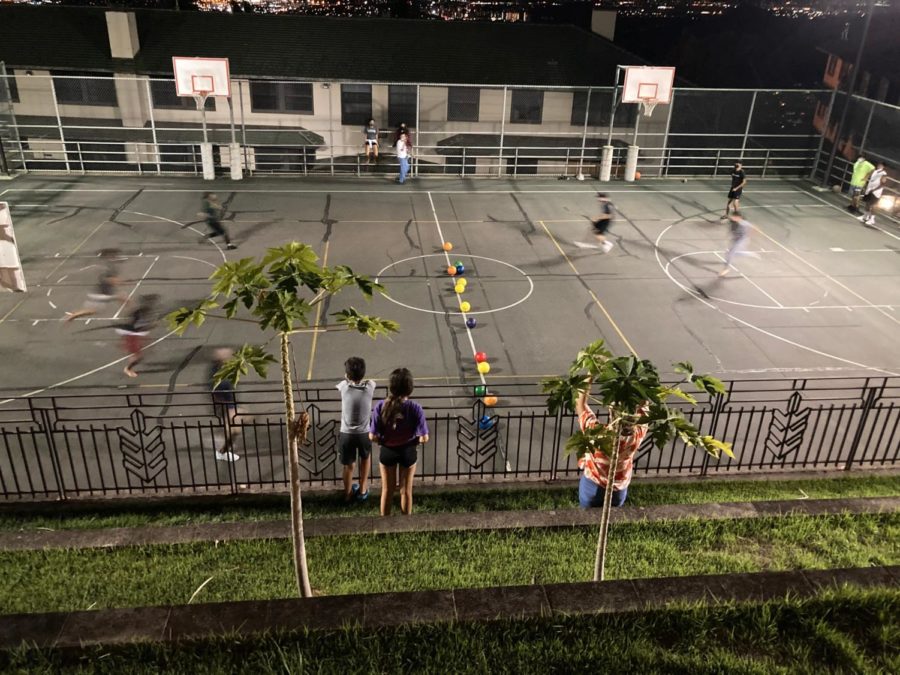Kamehameha Kapālama Campus Changes the Boarding Program.
With the new school year comes new changes especially within Residential Life, formally known as Boarding, at Kamehama’s Kapālama Campus.
After the closing of the boarding program due to safety health concerns regarding COVID-19, the boarding program has decided to reopen its doors but with a whole new name and a whole new set of dorm advisors.
Over the course of the past year the “Residential Life Program” has made many changes within some for the better, and some… maybe not. There are varying opinions about what is going on in Res. Life.
Naiʻa Kalima, a senior originally from Kaleiopapa Hale and a current resident of ʻIolani Hale said, “There are a lot of things we cannot do, so the boys feel like it’s to the point where our movement is restricted. Since the grades are split we don’t have that connection with the freshman and sophomores. It’s hard to be an alakaʻi for the younger class when there is no younger to watch us.”
One of the biggest changes is the dorms. Currently, the freshman and sophomore classes live in the upper campus in Kapiʻolani, Kekauluohi, and Kīnaʻu Hale. While the Seniors and Juniors live in Kapuāiwa, Kamehameha, ʻIolani, and Lunalilo Hale. There is a clear gap between the upper and lower classmen. There is a tradition of older brother/sister and little brother/sister. Where the senior is given a freshman to guide and build over the year as it is their first time here on campus. But now, boarders no longer see the underclassmen unless they make the trek from upper campus to lower campus to play on the courts.
Each student is accounted for, each morning every student turns in a form showing where they will be at all times of the day, and all passes for the weekends must be approved before students can think about going off-campus. While there is a lot of negatives in the eyes of returning boarders. Some students prefer to look on the positive side of these changes. Hilinaʻi Mahiʻai, a senior and returnee Kapuāiwa boarder said, “The new boarding system has been proving to be a positive experience with its trials here and there but overall a decent adjustment thus far.
While I do miss the opportunity to have dorm sisters from all the grades to create a more dynamic high school boarding experience, the ability to be around those of the same age group sheds a different light to the boarding program. Overall, it has been a shift of new possibilities and fond memories that have yet to come with the ladies I’m with.”
Though boarders may be separated by grade, we are beginning to gain more relationships and reconnect with our class just by being around each other every day. We see people who we
didn’t even know was in our class. Now, the upper and lower classmen have an area for each grade. It looks like the boarding program, now residential life program is taking two steps forward and one step backward.
About the Contributor

Tayvhe-Lei Kaupu-Galon, Reporter
EMAIL: [email protected]
Tayvhe-Lei Kaupu-Galon, From Hoʻokena Hawaiʻi but currently live in Kealakekua Hawaiʻi, currently, in 12 th grade, this is my second year on staff, I enjoy the outdoors, I love reading and enjoy writing. I also enjoy helping and serving around campus. As well as helping and serving my community back home. I enjoy playing basketball as well as riflery. I tend to doodle and draw when I get bored or if I am motivated enough to create something. I also love singing and playing music with my family.


